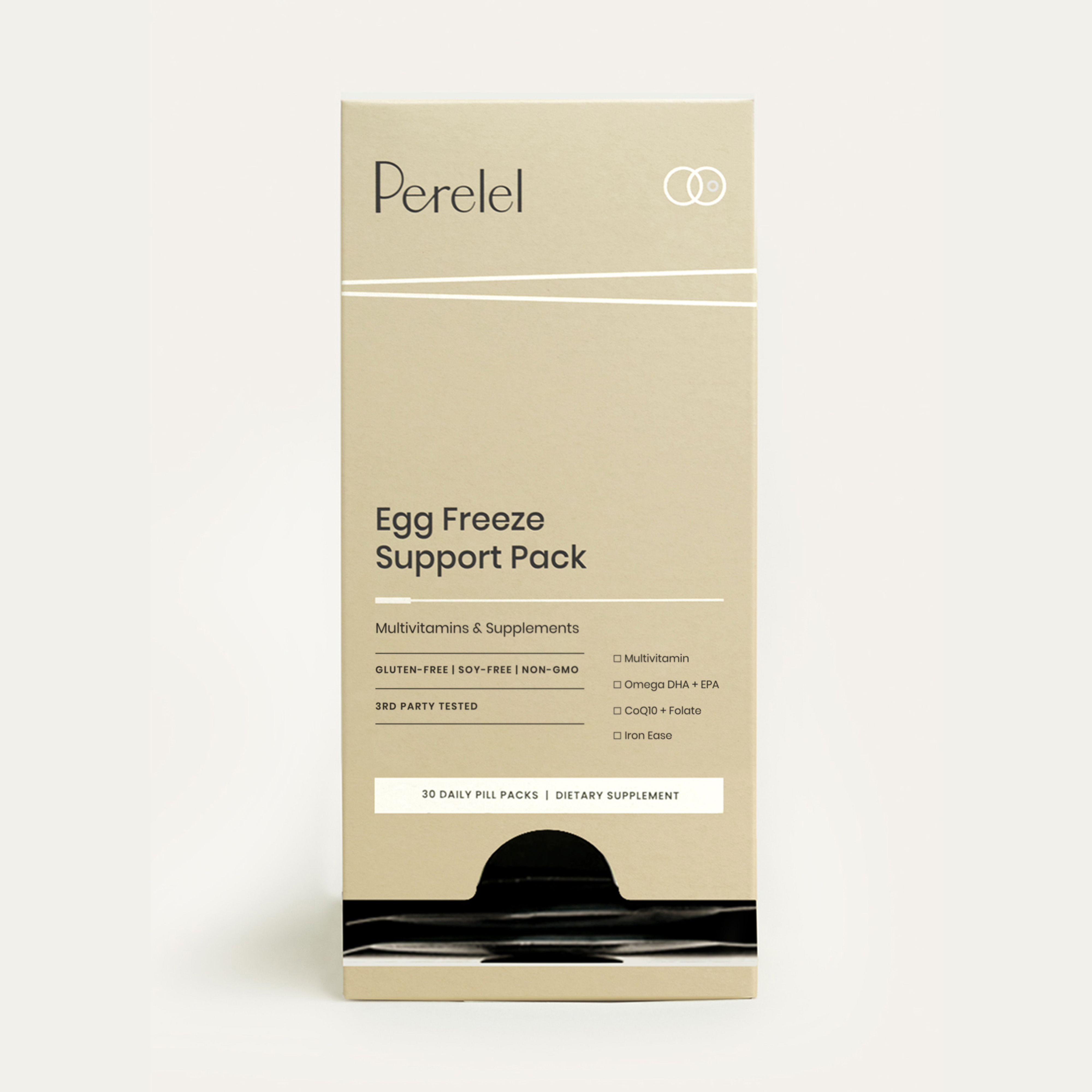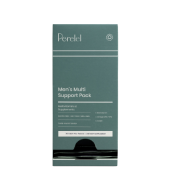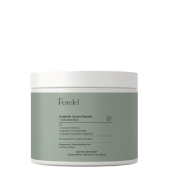This just in, breaking news. A pregnant woman has blown out the candles on her 35th birthday cake. Medical professionals advise that she will now be considered of “advanced maternal age,” in what’s known to many as a “geriatric pregnancy.” The mother is reported to feel exactly the same as she did yesterday, but we will keep you updated as this story evolves.
If you’ve been pregnant at age 35 or older, you know that the soundbite above contains no hyperbole. At 35, pregnant women are often labeled with the terms “geriatric pregnancy,” or “advanced maternal age.” We know that medicine is driven by science—of course—and it does not always cater to our needs for emotional buffers. But in a society where women are choosing to have children later in life, we have to wonder: Will medical language evolve, too? And, how did 35 end up as the magic number to fear?
W. Spencer McClelland, the physician lead for the Women’s Care Clinic at Denver Health, and an assistant professor of obstetrics and gynecology at the University of Colorado, recently published a fascinating piece on this topic for Slate. In it, he writes that early population studies do demonstrate increased risks for infertility, miscarriage, and chromosomal abnormalities, increase more significantly at age 35, but “to be clear, these risks are age-dependent and increase steadily with age generally, but at some point their rate of increase increases, and that inflection point has been pinpointed by some studies at age 35.” 1
Science has made the dreaded 35 less of a game-changer, and yet 35 is still codified in the medical lexicon.
Dr. McClelland explains that the origin of the number 35 comes from an outdated clinical reasoning during the mid 1970’s when doctors helped their patients weigh the benefits of an elective amniocentesis, or amnio, an invasive procedure used to rule out chromosomal abnormalities. As medicine has progressed, mothers now have other non-invasive screening methods, particularly cell-free DNA testing, which means that amnios are usually performed today only as follow-ups to other abnormal test results.1 This evolution of care is just one example of how science has made the dreaded 35 less of a game-changer, and yet 35 is still codified in the medical lexicon.
So while fertility is undoubtedly tied to age, your chance of conceiving does not evaporate with the smoke of your 35th birthday candles. Dr. McClelland called out that “one of the largest studies found that 78 percent of women aged 35 to 40 will conceive within a year, compared with 84 percent of women aged 20 to 34.”1
With all of this in mind, we reached out to the Perelel community to hear from you about your own experiences with pregnancy over 35 and turn it over to you:
Is it time to rebrand the term "geriatric pregnancy?" Read on below.
Shop the Article:
Did your medical team ever refer to you as “advanced maternal age” or “geriatric pregnancy?”
“Almost each appointment.” — Lindsay Osborn
“I was 34 for the vast majority of my pregnancy. I turned 35 on September 12th and my son was born on October 26th. My team never used 'geriatric pregnancy’ but I feel like I do remember seeing ‘advanced maternal age’ on some paperwork, but it was never spoken to me like that. The first time it became like a real thing to me was when I was admitted and received the high risk hospital bracelet simply because of my age.” — Katy Pitstick
How did that term make you feel throughout your pregnancy?
“To be honest it just made me laugh. I knew prior to getting pregnant that I would be considered geriatric. I felt great about the timing of having children for us—no medical term could shake that. In the end, it actually works to a lot of mother’s benefit. I had a lot of extra testing done, like extra ultrasounds and detailed blood work, and that was now covered by insurance because of my age…I call that a win.” — Sydnee Hines
"I felt great about the timing of having children for us—no medical term could shake that."
“Like a dinosaur and it was a miracle that I could even conceive.” — Lindsay Osborn
“Both of those terms made me feel like I had made some horrible choices and as if I were putting my baby at risk by daring to get pregnant at 35. I know that there are different risks that come with age and time, but our society has changed so much that it was when things were ‘right.’ Also, the first two pregnancies we had when we were first married ended in miscarriage. It’s not like I wanted to be pregnant ‘this late in life’ but they were the cards we were dealt. It’s ironic that the pregnancies we had when I was older were our two successful pregnancies compared to our first two when I was younger.” — Taylor Israel
“Honestly, we both cracked up because it's a ridiculous term.” — Betsy Brooks
Did you have extra tests or medical interventions because of your age during pregnancy?
“I don't think I was ever told to get tests by my team of docs, but I did get genetic testing done that I didn't get with my first baby because of the fact that I was older.” — Katy Pitstick
“I had to do a non-stress test at each appointment starting at 35 weeks.” — Betsy Brooks
If you have been pregnant multiple times before and after 35, did you experience a difference in your pregnancy before and after 35?
“I have been pregnant three times: the first time at 29-years-old, second time at 32, and the third time at 35. I had much more hormonal anxiety in my third trimester this time and generally felt more tired and less ‘game’ to go out to restaurants, but that could also be because of kids and the pandemic. I was way more worried about stillbirths and preeclampsia. I feel like I heard so much more about these this time around! And I've definitely lost my youthful feelings of invincibility after seeing all of my friends overcome fertility challenges, pregnancy losses, and complications.” — Betsy Brooks
“My first, I had when I was 31. My second, I had when I was 35. Not a damn thing was different (they were even both c-sections because they were both in the fairly rare position of footling breech) except for the fact that I was pregnant AND chasing around a 3 year old the second time around.” — Katy Pitstick
“I had three pregnancies before 35 and one at age 35. My fourth pregnancy was my easiest and healthiest with zero worries or complications and the easiest labor of them all!” — Taylor Israel
How should we rebrand pregnancy after 35?
“Can't we just call it pregnancy?” — Katy Pitstick
“I wish I had one! I understand increased risk and wanting to help protect mothers and children. In a country with the maternal death rate that we have, maybe worry less about labeling older mothers and provide better care to all mothers so regardless of age, everyone is properly cared for.” — Taylor Israel
“We could probably come up with something better than geriatric pregnancy—I’ll leave that to the creatives. We could also just focus on the beauty of the life we are growing and say a big ‘f you’ to the terminology. Change your own mindset. There’s absolutely nothing better than being a parent—at any age. Don’t let silliness steal your joy.” — Sydnee Hines
We want to hear what you think! Join the conversation on social. No matter where you’re at in your fertility journey, our OB/GYN-made vitamins are targeted to support your exact needs.

theFolio in Your Inbox
Sign up to receive doctor-backed, stage-specific content in your inbox each week.
References:
1Age 35 Isn't a Fertility Cliff. Why Do We Think It Is?." 17 Aug. 2020, https://slate.com/technology/2020/08/fertility-cliff-advanced-maternal-age-outdated.html. Accessed 30 Sep. 2022.
This article is for informational purposes only. It is not, nor is it intended to be, a substitute for professional medical advice, diagnosis, or treatment and we recommend that you always consult with your healthcare provider. To the extent that this article features the advice of physicians or medical practitioners, the views expressed are the views of the cited expert and do not necessarily represent the views of Perelel.
























